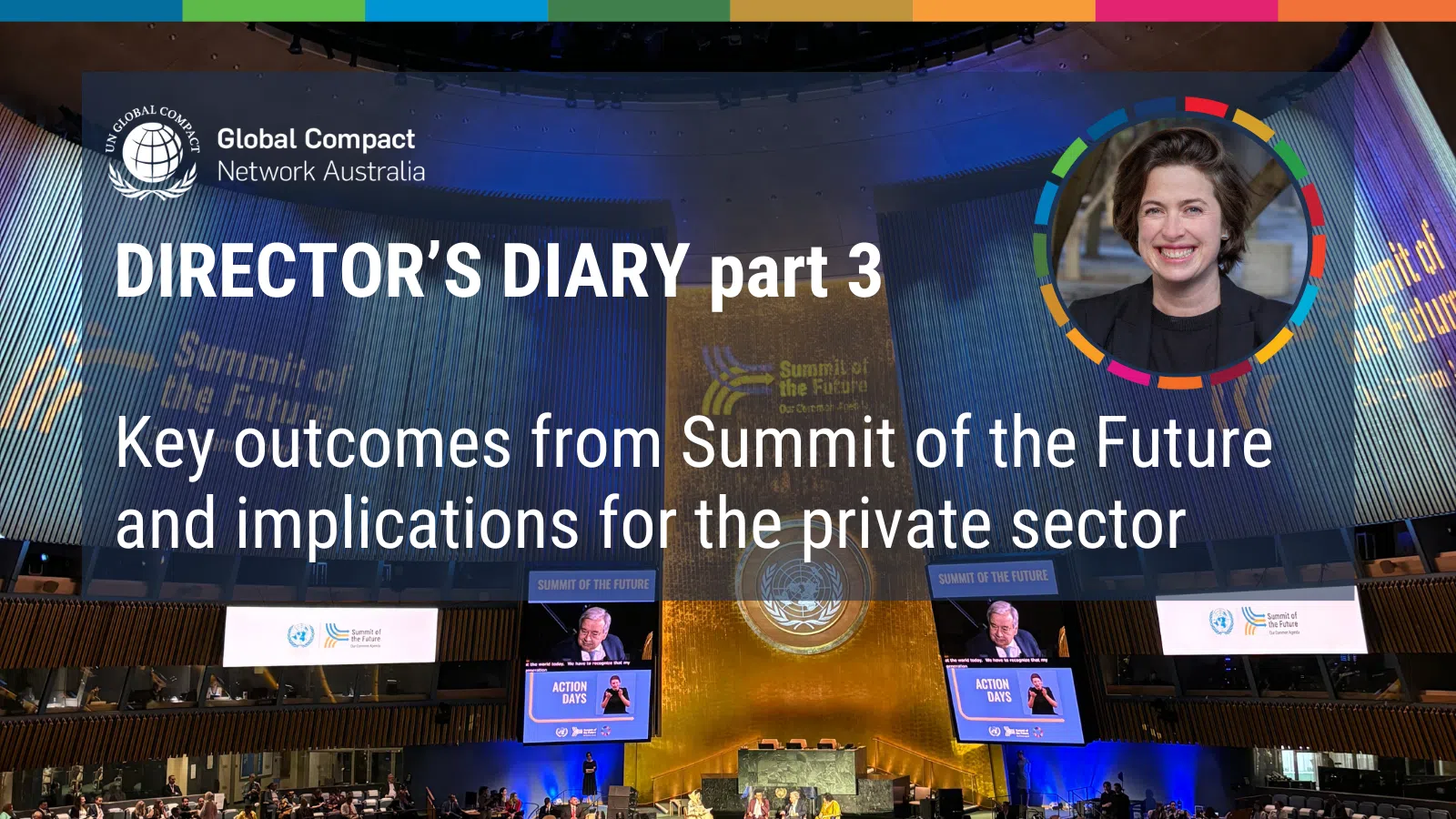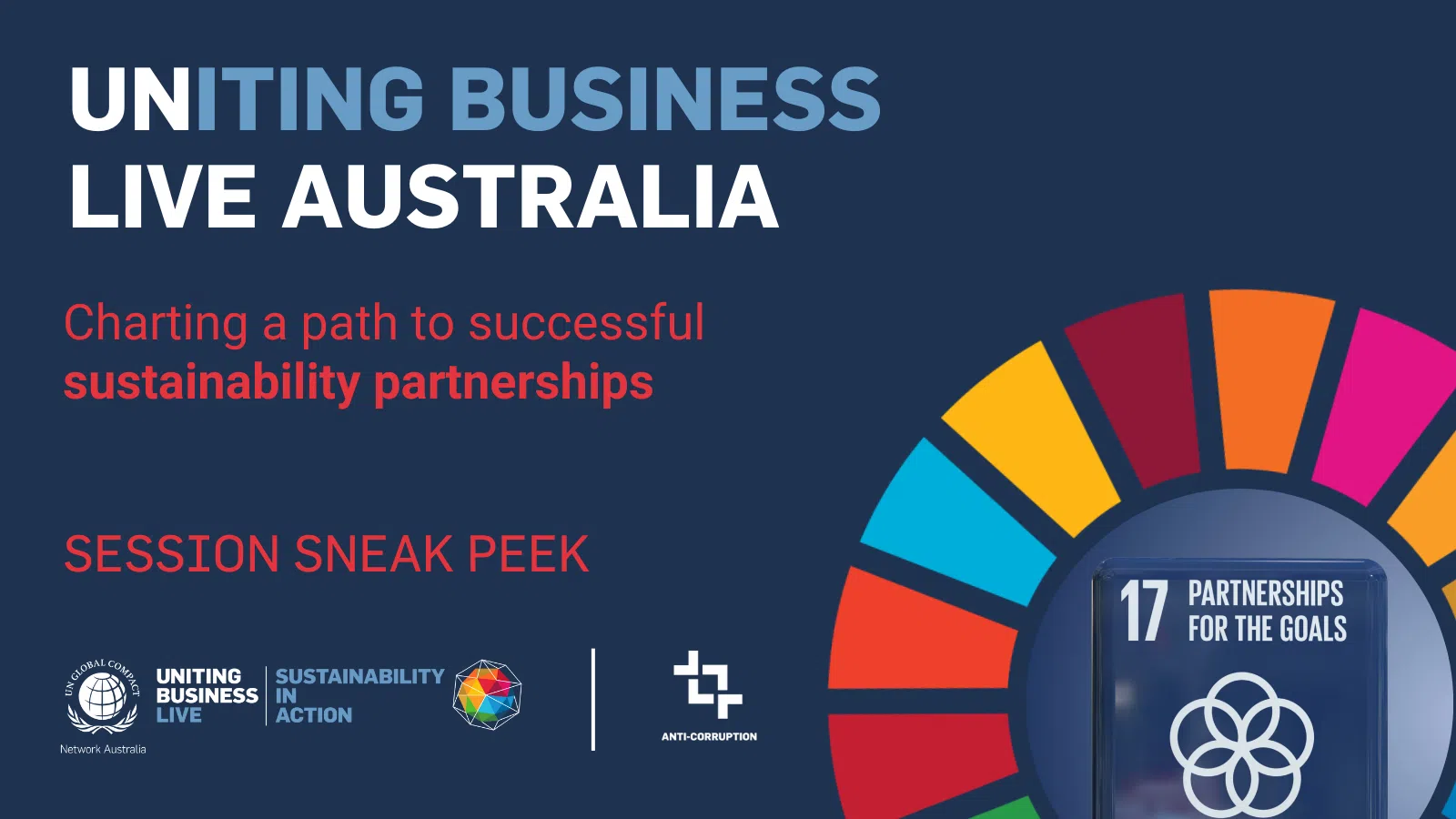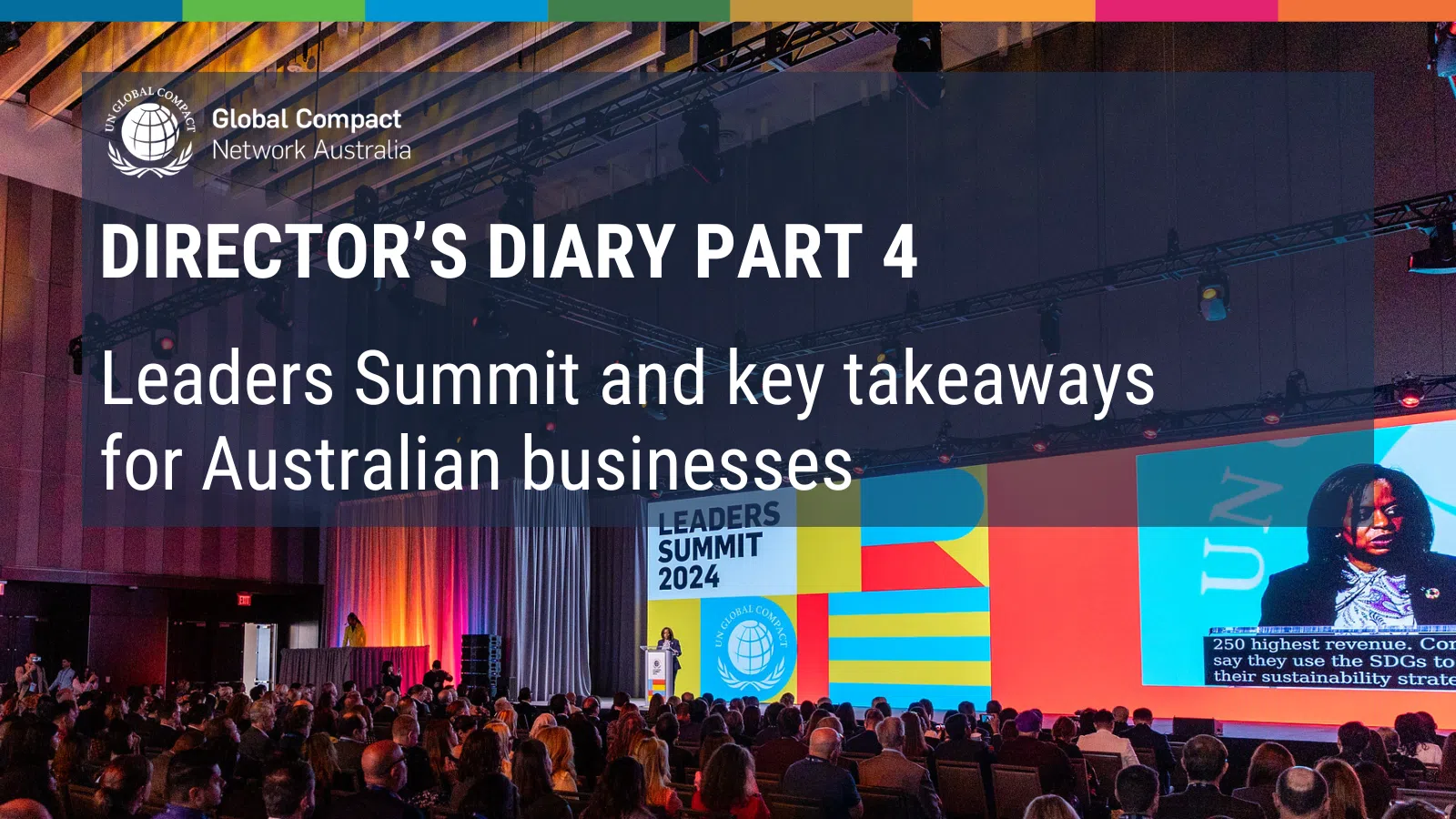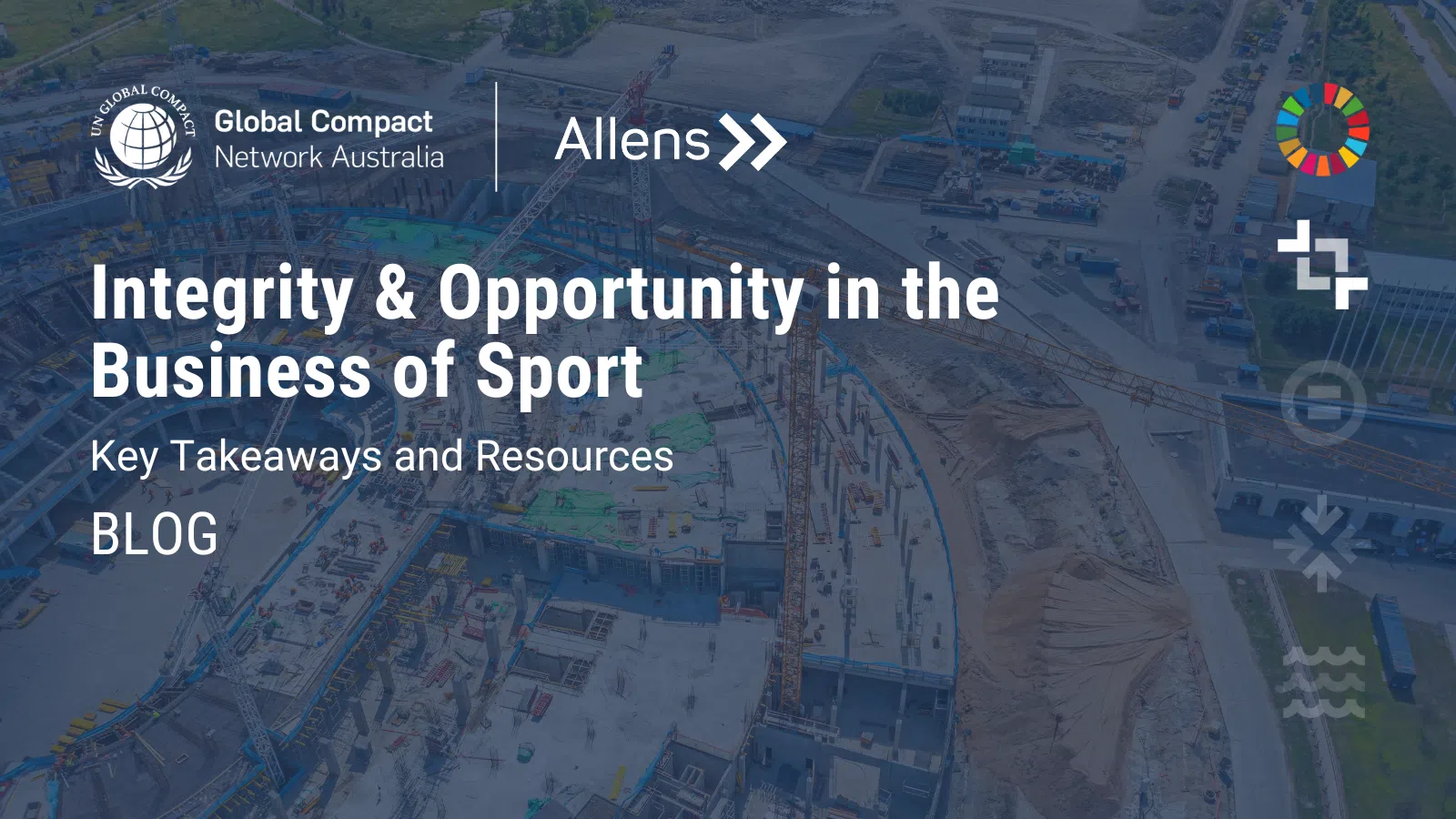
Blogs, News, Sustainable Development Goals
Director’s Diary part 3: Key outcomes from Summit of the Future and implications for the private sector
Kate Dundas | September 25, 2024
The Summit of the Future has been designed to get the world back on track to achieve the Sustainable Development Goals (SDGs). Deliberations at the Summit included addressing the debt crisis holding many developing countries back and reforming the international financial architecture.
The outcome of the Summit is encapsulated in an inter-governmentally agreed Pact for the Future, accompanied by two annexes: the Global Digital Compact and a Declaration on Future Generations.
1. Summit of the Future and the implications for the private sector
The UN Summit of the Future, held on 22-23 September 2024, has significant implications for the private sector, recognising the critical role businesses play in achieving sustainable development and addressing global challenges. Here are the key takeaways:
- Catalyst for sustainable business practices: The Summit encourages businesses to adopt sustainable practices that align with the SDGs. It serves as a platform to showcase how companies can integrate environmental, social, and governance (ESG) criteria into their operations and strategies.
- Public-private partnerships (PPPs): The Summit emphasised the importance of public-private partnerships in driving innovation and scaling solutions to global challenges. By fostering collaboration between governments, international organisations and businesses, it aims to leverage resources, expertise and technologies.
- Corporate responsibility and accountability: Businesses were urged to take responsibility for their impact on society and the environment. The Summit promoted corporate accountability, encouraging companies to be transparent, report on their sustainability performance, and adhere to ethical standards.
- Innovation and technological advancement: The private sector is a key driver of innovation. The Summit highlighted the role of technological advancements in solving global issues, such as climate change, healthcare and digital inclusion. Businesses are encouraged to invest in research and development that supports sustainable development.
- Financing sustainable development: The Summit focussed on mobilising private sector investments to finance sustainable development initiatives. It seeks to unlock capital for projects that contribute to the SDGs, emphasizing the role of sustainable finance, impact investing, and green bonds.
2. Pact for the Future
World leaders adopt a Pact for the Future that includes a Global Digital Compact and a Declaration on Future Generations. The Pact covers a broad range of themes including peace and security, sustainable development, climate change, digital cooperation, human rights, gender, youth and future generations, and the transformation of global governance.
- The Pact for the Future was adopted at the summit, it represents an important step towards a stronger and more inclusive multilateral system – one fit to address today’s global challenges and accelerate our efforts for the SDGs.
- We need the support of all stakeholders, including the private sector, to ensure that the Pact’s ambitions are translated into meaningful change on the ground.
- The Pact calls for bridging the digital divide, ensuring a just energy transition, transforming our food system while guaranteeing decent work and social protection. These are winning agendas for society, business and the environment.
- Public and private sector leaders should work in partnership around three key goals:
-
- First – enabling policies and regulatory environments that support responsible business and drive efficiency, innovation and fair competition.
- Second – building multi-stakeholder support for national sustainable development and climate plans by embracing them as investment roadmaps for the future.
- Third – making SDG financing more sustainable and more accessible.
3. Private Sector Forum – held at the Summit of the Future
- Hosted by the UN Secretary-General during the UN Summit of the Future, the Private Sector Forum brings the voice of business to the UN by inviting over 100 leading CEOs and investors to sit down for lunch with Heads of State and Government, senior UN leadership and civil society representatives for an interactive luncheon, featuring roundtable discussions and high-level networking opportunities.
- The year’s Forum held as the luncheon of the UN Summit of the Future, explores pressing issues and policy barriers impacting sustainability today—and opportunities for tomorrow—including SDG acceleration; geopolitical disruption; sustainable finance; and digital transformation.
Our Executive Director Kate Dundas is attending the 79th session of the United Nations General Assembly 🌍
During her 10-day trip to New York, Kate will participate in a variety of engaging events, from the Summit of the Future and Leaders Summit to roundtables and sessions focused on progressing the SDGs.
Don’t miss out on her Director’s Diary Series – live from New York to your inbox and social media feeds!


